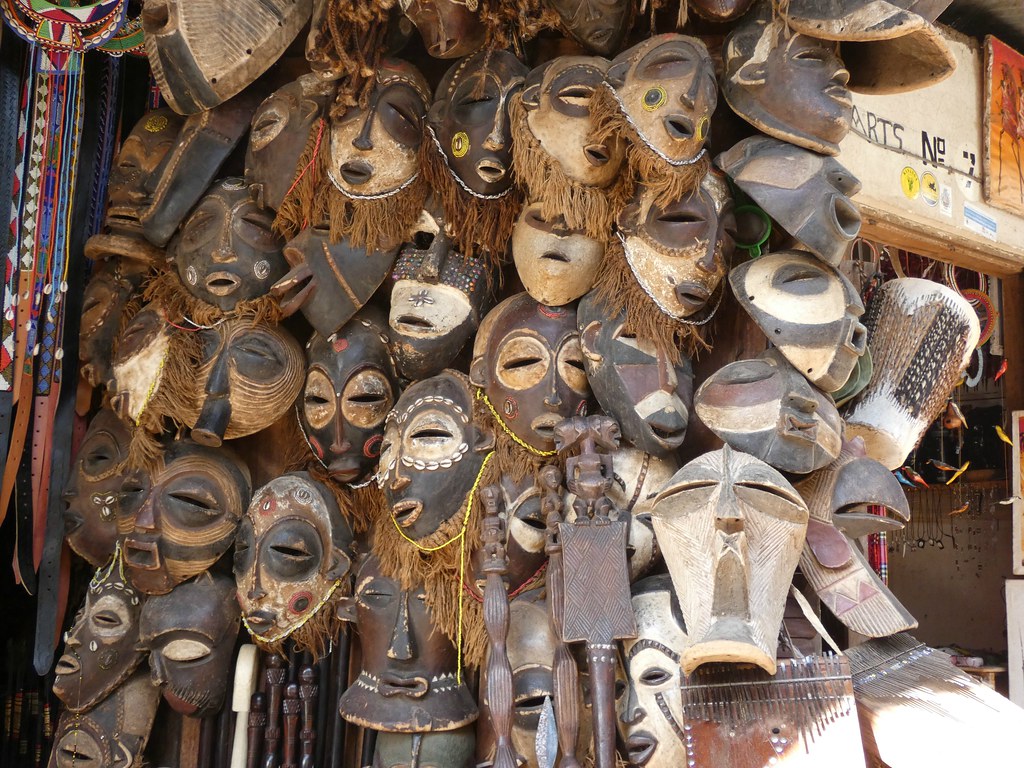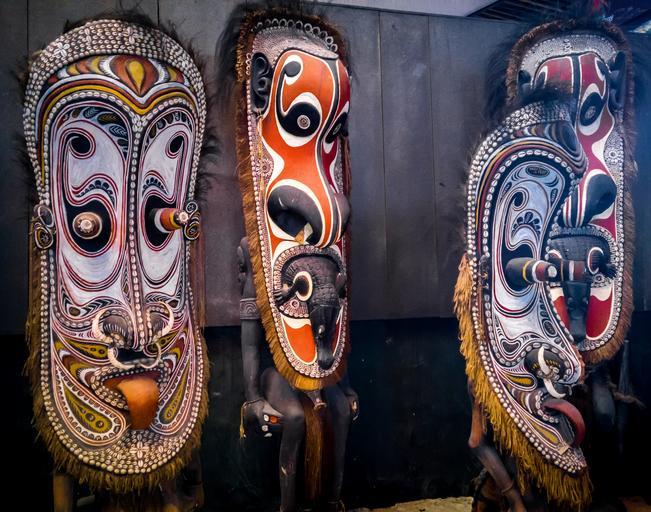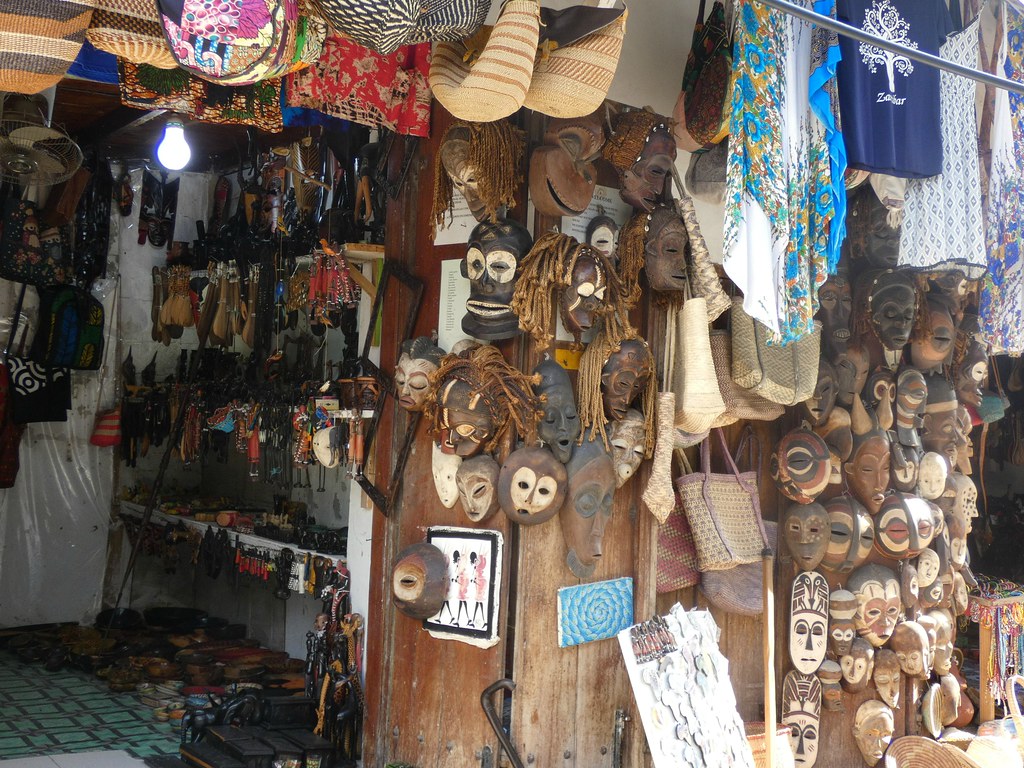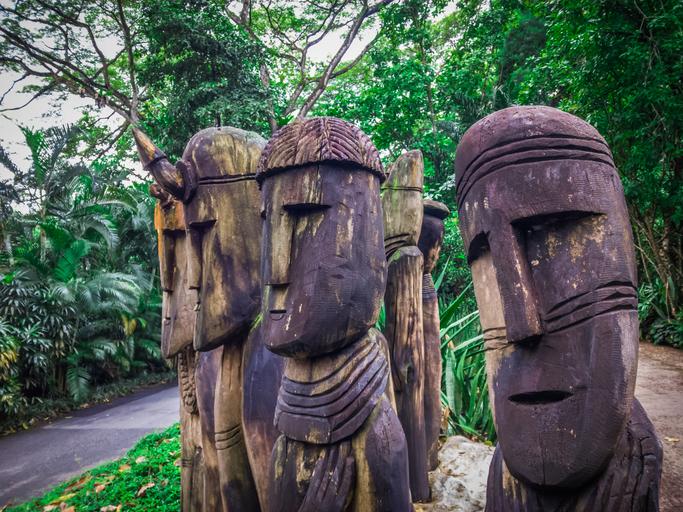
Introduction
Taking a piece of Tanzania home with you is more than just acquiring an object; it's about holding onto a memory, a story, or a connection to the incredible culture and artistry you've experienced. From the bustling markets of Arusha to the tranquil workshops in Zanzibar, Tanzania offers a treasure trove of unique crafts. I've guided many travelers to find that perfect memento, and the joy of discovering something truly special and authentic is always a highlight.
Bringing home a piece of Tanzania is a wonderful way to remember your safari. This guide helps you find authentic souvenirs, from vibrant Tinga Tinga paintings to intricate Makonde carvings and sparkling Tanzanite, with advice on where to shop and how to bargain respectfully.
Popular Authentic Tanzanian Souvenirs:
- Tinga Tinga Paintings: Vibrant, colorful, and often whimsical, these enamel paintings depict animals, village life, or abstract designs. Originating from Edward Saidi Tingatinga, they are uniquely Tanzanian.
- Makonde Carvings: Intricate sculptures, traditionally from ebony (mpingo) wood, by the Makonde people. They range from "Shetani" (spirit) figures to "Ujamaa" (family tree) sculptures showing interconnected figures. Be aware that true ebony is heavy and dark throughout.
- Maasai Crafts:
- Beadwork: Stunningly intricate necklaces, bracelets, earrings, and belts made by Maasai women. Each color often has a symbolic meaning.
- Shukas: The iconic red-checked (or other colors) blankets worn by Maasai.
- Carved walking sticks and spears: Though check airline restrictions for carrying these.
- Tanzanite: A beautiful blue-violet gemstone found only in Tanzania, near Arusha.
- Buying Tip: Purchase from reputable, licensed dealers only. Ask for a certificate of authenticity. Prices vary hugely based on color, clarity, cut, and carat. If a deal seems too good to be true, it probably is.
- Textiles:
- Khanga & Kitenge: Colorful printed cotton fabrics worn by women, often with Swahili sayings printed on them (Khanga). Great for sarongs, dresses, or home decor.
- Batik: Fabric decorated using a wax-resist dyeing technique.
- Coffee & Tea: Tanzania produces excellent coffee (especially from the Kilimanjaro region) and tea. Great consumable gifts.
- Spices: Especially from Zanzibar (the "Spice Island"). Cloves, vanilla, cinnamon, nutmeg, pepper.
- Woven Baskets & Mats: Practical and beautiful, made from local grasses and fibers.
- Musical Instruments: Small drums, marimbas, or stringed instruments.
Where to Buy Your Souvenirs:
- Cultural Heritage Centres: Places like the Cultural Heritage Centre in Arusha offer a wide variety, often at fixed (but fair) prices, and showcase high-quality crafts.
- Local Markets (Soko): Arusha Central Market, Maasai markets. Great for an atmospheric experience and bargaining, but quality can vary.
- Lodge & Camp Gift Shops: Convenient, usually good quality, but often more expensive. A portion of sales sometimes supports local community projects.
- Artisan Cooperatives & Workshops: Buying directly from the source is ideal if you can find them. Some tour operators facilitate visits. This is where I've found some of my most treasured pieces, often after a good chat with the artist.
- Roadside Stalls: Can be hit or miss. Good for smaller items, but be cautious with high-value purchases.
Fair Bargaining – The Art of the Deal:
- It's Expected (in markets): Don't be shy, but always be polite and friendly.
- Have an Idea of Value: Look around first.
- Start Low, Aim for Middle: Offering 50-60% of the initial price is a common starting point.
- Smile and Be Patient: It's a negotiation, not an argument.
- Be Prepared to Walk Away: If you can't agree on a price you're comfortable with, politely decline and move on. Sometimes the vendor will call you back with a better offer.
- Bundle Items: You might get a better overall price if you buy several things from one vendor.
- Use Local Currency (TZS): Often preferred, though USD may be accepted.
Spotting Quality & Avoiding Fakes:
- Tanzanite: As mentioned, buy from licensed jewelers, look for clarity and good color saturation, and ask for a gemological certificate for significant purchases.
- Makonde Carvings: Authentic ebony is very dense and heavy. Lighter wood painted black is a common fake.
- "Antiques": Be wary of items claimed to be very old unless you are an expert or buying from a highly reputable source.
Export Considerations:
- Wildlife Products: Avoid buying items made from ivory, rhino horn, turtle shells, or other endangered species. It's illegal and unethical. CITES regulations are strict.
- Antiques & Cultural Artifacts: There may be restrictions on exporting items of significant cultural heritage. Check if unsure.
By choosing your souvenirs thoughtfully, you not only bring home a beautiful reminder of Tanzania but also contribute positively to the local economy and the preservation of its rich artistic traditions.

Apollo's Recommendation
“**Seek out authentic, locally made items and, where possible, buy directly from the artisans or reputable cooperatives.** This ensures your money supports the creators and their communities. Don't be afraid to bargain, but do so respectfully and with a smile – it's part of the culture, not a battle. Start by offering around 50-60% of the asking price and aim to meet somewhere in the middle. And remember, quality over quantity. A small, well-chosen piece with a story often means more than a bag full of trinkets. I always tell people: "The best souvenir has a story you can share."”
About the Author
APApollo
Safari Guide & Fair Trade Advocate
Former park ranger with over 7000 days of safari experience
Souvenirs from Tanzania: Finding Authentic Keepsakes & Fair Bargaining



Ready to explore this highlight?
Contact us to plan your perfect safari experience that includes a visit to this amazing destination.
Ready to Experience Tanzania?
Browse our safari tours to start planning your adventure.
View Safari Tours